
Claude Lanzmann
Рождение : 1925-11-27, Paris, Ile-de-France, France
Смерть : 2018-07-05
История
Его дед и бабушка, Янкл и Перл Гроберман, эмигрировали в Париж из Кишинёва после еврейского погрома 1903 года, когда его матери Полетте было 3 месяца. Дед и бабушка по отцовской линии, Ицхок (Леон, 1874—?) и Анна Ланцман, эмигрировали тогда же из Вилейки. В 1940 Клод вместе с братом и сестрой скрывался от немцев в овернской деревне. В 1943 он стал одним из организаторов Сопротивления в лицее Блеза Паскаля в Клермон-Ферране. Был в подполье, затем в отрядах маки в Оверни.
С 1947 изучал философию в Тюбингене, затем преподавал философию и французскую литературу в Свободном университете Берлина, где в 1952 познакомился с Сартром и Симоной де Бовуар. Ланцман начал активно сотрудничать с их журналом «Тан модерн» («Новые времена»), был его главным редактором. Подписал «Манифест 121» против войны в Алжире. Много писал об арабо-израильском конфликте. С 1970 почти целиком сосредоточился на документальном кино.
Умер 5 июля 2018 года. Был удостоен национальной церемонии прощания. Похоронен на кладбище Монпарнас.

Himself (archive footage)
A chronicle of the Holocaust, told by the resilient survivors who lived through it.

Claude Lanzmann
After his retirement, french philosopher and bullfighting enthusiast Francis Wolff decides to embark on a journey to France, Spain and Mexico joined by two mexican filmmakers who hardly know anything about bullfighting, a culture whose days seem to be numbered. During their road trip, they encounter numerous personalities with whom they reflect on mankind’s relationship with animals and nature, but most importantly on our relationship with death and the meaning of the ultimate journey: life itself.
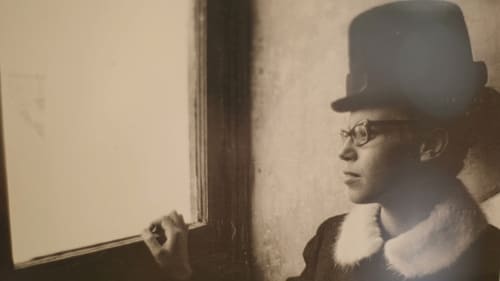
Self (Archival footage)
This film tells the life story of Ziva Postec, emphasizing the period when she was editing Shoah from 350 hours of footage.

Since 1999, Claude Lanzmann has made several films that could be considered satellites of Shoah, comprised of interviews conducted in the 1970s that didn’t make it into the final, monumental work. He has just completed a series of four new films, built around four women from four different areas of Eastern Europe with four different destinies, each finding herself unexpectedly and improbably alive after war’s end.

Writer
Since 1999, Claude Lanzmann has made several films that could be considered satellites of Shoah, comprised of interviews conducted in the 1970s that didn’t make it into the final, monumental work. He has just completed a series of four new films, built around four women from four different areas of Eastern Europe with four different destinies, each finding herself unexpectedly and improbably alive after war’s end.

Director
Since 1999, Claude Lanzmann has made several films that could be considered satellites of Shoah, comprised of interviews conducted in the 1970s that didn’t make it into the final, monumental work. He has just completed a series of four new films, built around four women from four different areas of Eastern Europe with four different destinies, each finding herself unexpectedly and improbably alive after war’s end.
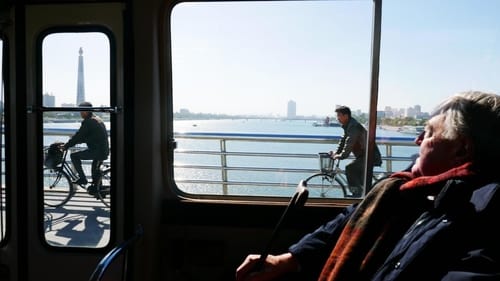
Himself
Napalm is the story of the breathtaking and brief encounter, in 1958, between a French member of the first Western European delegation officially invited to North Korea after the devastating Korean war and a nurse working for the Korean Red Cross hospital, in Pyongyang, capital of the Democratic People’s Republic of Korea.

Writer
Napalm is the story of the breathtaking and brief encounter, in 1958, between a French member of the first Western European delegation officially invited to North Korea after the devastating Korean war and a nurse working for the Korean Red Cross hospital, in Pyongyang, capital of the Democratic People’s Republic of Korea.

Director
Napalm is the story of the breathtaking and brief encounter, in 1958, between a French member of the first Western European delegation officially invited to North Korea after the devastating Korean war and a nurse working for the Korean Red Cross hospital, in Pyongyang, capital of the Democratic People’s Republic of Korea.
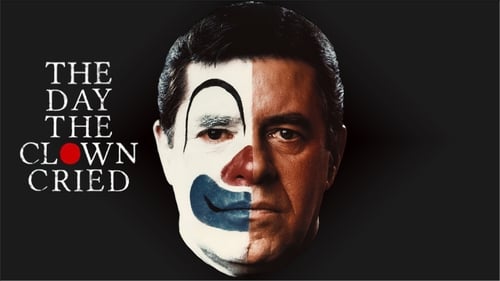
Self
A documentary directed by Eric Friedler about Jerry Lewis' never released movie "The Day The Clown Cried".

The process of making Shoah.
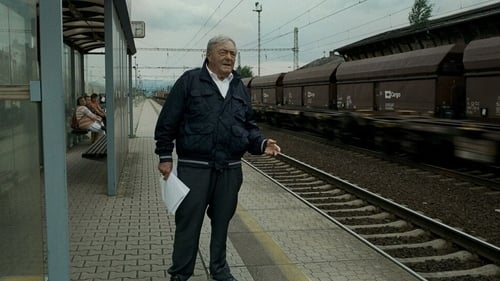
Himself
1975 год. Клод Ланцманн снимает в Риме фильм о Беньямине Мурмельштейне, последнем председателе Еврейского Совета гетто Терезиенштадт, единственном «еврейском старейшине», не погибшем на войне. После аннексии Австрии Германией в 1938 г. Мурмельштейн, бывший венский раввин, неделю за неделей, в течение семи лет ведет борьбу с Эйхманом. Ему удалось добиться разрешения на отъезд 121 000 евреев и избежать ликвидации гетто. В 2012 г. 87-летний Клод Ланцманн не прячет признаков разрушительного действия времени на людей и остается верен своей теме, вновь возвращаясь к римским беседам. Картина повествует о Терезиенштадте — городе, «подаренном Гитлером евреям», насквозь фальшивом «образцовом гетто», выбранном Адольфом Эйхманом для предъявления мировой общественности.

Writer
1975 год. Клод Ланцманн снимает в Риме фильм о Беньямине Мурмельштейне, последнем председателе Еврейского Совета гетто Терезиенштадт, единственном «еврейском старейшине», не погибшем на войне. После аннексии Австрии Германией в 1938 г. Мурмельштейн, бывший венский раввин, неделю за неделей, в течение семи лет ведет борьбу с Эйхманом. Ему удалось добиться разрешения на отъезд 121 000 евреев и избежать ликвидации гетто. В 2012 г. 87-летний Клод Ланцманн не прячет признаков разрушительного действия времени на людей и остается верен своей теме, вновь возвращаясь к римским беседам. Картина повествует о Терезиенштадте — городе, «подаренном Гитлером евреям», насквозь фальшивом «образцовом гетто», выбранном Адольфом Эйхманом для предъявления мировой общественности.

Director
1975 год. Клод Ланцманн снимает в Риме фильм о Беньямине Мурмельштейне, последнем председателе Еврейского Совета гетто Терезиенштадт, единственном «еврейском старейшине», не погибшем на войне. После аннексии Австрии Германией в 1938 г. Мурмельштейн, бывший венский раввин, неделю за неделей, в течение семи лет ведет борьбу с Эйхманом. Ему удалось добиться разрешения на отъезд 121 000 евреев и избежать ликвидации гетто. В 2012 г. 87-летний Клод Ланцманн не прячет признаков разрушительного действия времени на людей и остается верен своей теме, вновь возвращаясь к римским беседам. Картина повествует о Терезиенштадте — городе, «подаренном Гитлером евреям», насквозь фальшивом «образцовом гетто», выбранном Адольфом Эйхманом для предъявления мировой общественности.

Himself
A powerful new film about Jan Karski, the Polish resistance figure who attempted to expose the Warsaw Ghetto and Belzec, and met with President Franklin D. Roosevelt and Supreme Court Justice Felix Frankfurter.

Writer
A powerful new film about Jan Karski, the Polish resistance figure who attempted to expose the Warsaw Ghetto and Belzec, and met with President Franklin D. Roosevelt and Supreme Court Justice Felix Frankfurter.

Director
A powerful new film about Jan Karski, the Polish resistance figure who attempted to expose the Warsaw Ghetto and Belzec, and met with President Franklin D. Roosevelt and Supreme Court Justice Felix Frankfurter.

Writer
At the occasion of the sixtieth anniversary of Israel, Claude Lanzmann made an interview of Ehud Barak, on March 1st, 2008.

Director
At the occasion of the sixtieth anniversary of Israel, Claude Lanzmann made an interview of Ehud Barak, on March 1st, 2008.

Self - Interviewer
At the occasion of the sixtieth anniversary of Israel, Claude Lanzmann made an interview of Ehud Barak, on March 1st, 2008.

Writer
A Claude Lanzmann documentary about one uprising by Jews in a Nazi-run concentration camp taken from his Shoah interviews.

Himself - Interviewer
A Claude Lanzmann documentary about one uprising by Jews in a Nazi-run concentration camp taken from his Shoah interviews.

Director
A Claude Lanzmann documentary about one uprising by Jews in a Nazi-run concentration camp taken from his Shoah interviews.

Himself
An interview with a WWII Red Cross official who wrote a glowing report on a Jewish ghetto-cum-death camp.

Producer
An interview with a WWII Red Cross official who wrote a glowing report on a Jewish ghetto-cum-death camp.

Writer
An interview with a WWII Red Cross official who wrote a glowing report on a Jewish ghetto-cum-death camp.

Director
An interview with a WWII Red Cross official who wrote a glowing report on a Jewish ghetto-cum-death camp.

Writer
The ideologies underlying the foundation of modern Israel are explored in this documentary, the third of a trilogy (created over a twenty year span) exploring the Jewish experience. The two earlier documentaries, "Porquoi Israel," and "Shoah," have had great effect on the ways documentaries are produced. "Tsahal" zeroes in on the crucial role of the military in Israeli society and politics. The film uses many in-depth interviews to present the many feelings and thoughts about the Israeli military.

Director
The ideologies underlying the foundation of modern Israel are explored in this documentary, the third of a trilogy (created over a twenty year span) exploring the Jewish experience. The two earlier documentaries, "Porquoi Israel," and "Shoah," have had great effect on the ways documentaries are produced. "Tsahal" zeroes in on the crucial role of the military in Israeli society and politics. The film uses many in-depth interviews to present the many feelings and thoughts about the Israeli military.

Himself
The ideologies underlying the foundation of modern Israel are explored in this documentary, the third of a trilogy (created over a twenty year span) exploring the Jewish experience. The two earlier documentaries, "Porquoi Israel," and "Shoah," have had great effect on the ways documentaries are produced. "Tsahal" zeroes in on the crucial role of the military in Israeli society and politics. The film uses many in-depth interviews to present the many feelings and thoughts about the Israeli military.
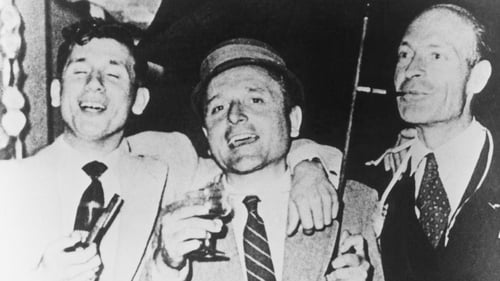
Self
Документальный фильм о Клаусе Барби, известном также как «лионский мясник», начальнике гестапо в Лионе. О его жизни до и после войны. Фильм последовательно раскрывает следующие темы:
- детство и юность Клауса Барби;
- служба в лионском отделении гестапо: работа над "окончательным решением еврейского вопроса", борьба с французским Сопротивлением в т.ч. убийство Жана Мулена;
- работа на Корпус контрразведки США в послевоенной Германии;
- бегство в Южную Америку по "крысиной тропе";
- жизнь в Боливии и Перу и сотрудничество с правыми режимами и с ЦРУ;
- экстрадиция и суд над Барби во Франции (защитник на суде - Жак Вержес)

Self - Interviewer
Клод Ланцманн снял этот документальный фильм о Холокосте продолжительностью девять с половиной часов, не используя ни одного кадра архивных материалов. Он беседует с оставшимися в живых, свидетелями и бывшими нацистами (которых он снимал тайно, поскольку они соглашались давать интервью только по аудиозаписи). Его стиль интервьюирования, когда он узнает мельчайшие подробности, помогает сложить эти подробности, чтобы дать ужасающий портрет событий нацистского геноцида. Он также показывает или вернее позволяет некоторым из своих подданных показать, что антисемитизм, который привел к гибели 6 миллионов евреев во время Холокоста, все еще жив во многих людях, которые все еще живут в Германии, Польше и других странах.

Writer
Клод Ланцманн снял этот документальный фильм о Холокосте продолжительностью девять с половиной часов, не используя ни одного кадра архивных материалов. Он беседует с оставшимися в живых, свидетелями и бывшими нацистами (которых он снимал тайно, поскольку они соглашались давать интервью только по аудиозаписи). Его стиль интервьюирования, когда он узнает мельчайшие подробности, помогает сложить эти подробности, чтобы дать ужасающий портрет событий нацистского геноцида. Он также показывает или вернее позволяет некоторым из своих подданных показать, что антисемитизм, который привел к гибели 6 миллионов евреев во время Холокоста, все еще жив во многих людях, которые все еще живут в Германии, Польше и других странах.

Director
Клод Ланцманн снял этот документальный фильм о Холокосте продолжительностью девять с половиной часов, не используя ни одного кадра архивных материалов. Он беседует с оставшимися в живых, свидетелями и бывшими нацистами (которых он снимал тайно, поскольку они соглашались давать интервью только по аудиозаписи). Его стиль интервьюирования, когда он узнает мельчайшие подробности, помогает сложить эти подробности, чтобы дать ужасающий портрет событий нацистского геноцида. Он также показывает или вернее позволяет некоторым из своих подданных показать, что антисемитизм, который привел к гибели 6 миллионов евреев во время Холокоста, все еще жив во многих людях, которые все еще живут в Германии, Польше и других странах.

Himself
Using interviews and other footage shot especially for this documentary, French director Claude Lanzmann investigates the state of Israel in 1972. This movie concentrates on Israelis going about their business of everyday living.

Writer
Using interviews and other footage shot especially for this documentary, French director Claude Lanzmann investigates the state of Israel in 1972. This movie concentrates on Israelis going about their business of everyday living.

Director
Using interviews and other footage shot especially for this documentary, French director Claude Lanzmann investigates the state of Israel in 1972. This movie concentrates on Israelis going about their business of everyday living.









